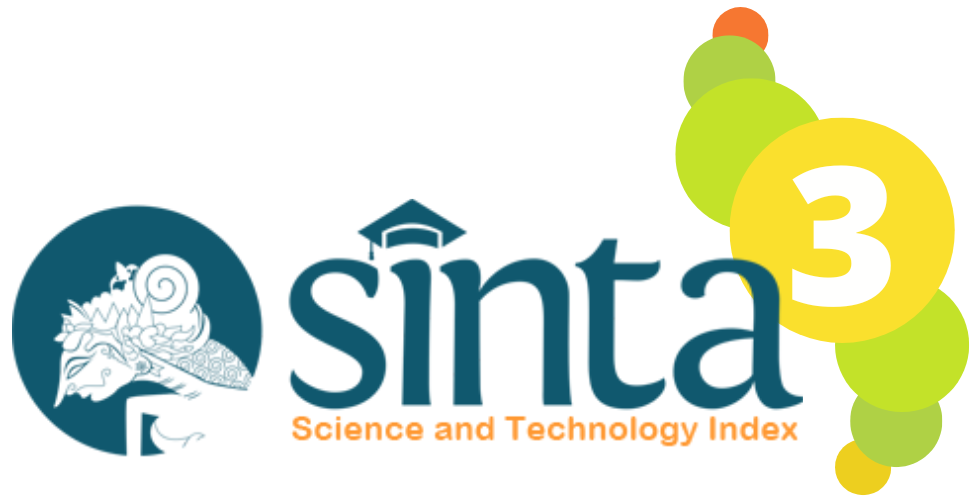Analisis Respon Guru Dan Siswa Terhadap Pengembangan Bahan Ajar Fisika Berbasis Model POE2WE Berbantuan Google Site
Sari
Kata Kunci
Teks Lengkap:
PDFReferensi
Allchin, D. (2014). From Science Studies to Scientific Literacy: A View from the Classroom. Science and Education, 23(9), 1911–1932.
Ardiani, D, Prasetiyawati, D & Prasetyo, A.S, (2022). Intensitas Anak Menggunakan Smartphone di Masa Pandemi Terhadap Perilaku Anak Sekolah Dasar. Jurnal Ilmu Pendidikan Dasar. 5(2), 235–242
Azis, T. N., (2019). Strategi Pembelajaran Era Digital. The Annual Conference on Islamic Education and Social Sains. 1(2), 308–318.
Cochrane, T, and Bateman, R, (2010). Smartphones Give You Wings: Pedagogical Affordances of Mobile Web 2.0. Australasian Journal of Educational Technology. 26(1), 1-14.
Dewantara, D., Febrianti, Wati, M., & Mastuang, M. (2019). Development of simple machines props to train student’s science process skills. Journal of Physics: Conference Series, 1171(1), 1-9.
Fatmaryanti, S. D., Suparmi, S., Sarwanto, S., & Ashadi, A. (2015). Implementation Of Guided Inquiry In Physics Learning At Purworejo’s Senior High School. International Conference On Mathemathics
Guido, R. M. D. (2013). Attitude and Motivation toward Learning Physics. International Journal of Engineering Research & Technology (IJERT, 2(1), 2087–2093.
Ghareb, M. I., & Mohammed, S. A. (2016). The Effect of E-Learning and the Role of New Technology at University of Human Development. International Journal of Multidisciplinary and Current Research, 4, 299–307
Hartono, D.N, & Dirgantoro, K.P.S, (2023). Keefektifan Bahan Ajar dalam Mendukung Tercapainya Tujuan Pembelajaran Kognitif Matematika. Jurnal Kajian Pendidikan Matematika. 8(1). 147 - 156
Ismanto, Edi, Melly Novalia, Dan Pratama Benny Herlandy. (2017). Pemanfaatan smartphone android sebagai media pembelajaran bagi guru SMA Negeri 2 kota pekanbaru. Jurnal Pengabdian Untukmu Negeri 1 (1): 42–47.
Mang & Wardley, (2012). Effective Adoption of Tablets in Post-Secondary Education: Recommendations Based on a Trial of iPads in University Classes. Journal of Information Technology Education: Innovations in Practice. 11. 301 – 316
Maknuni, J. (2020). Pengaruh Media Belajar Smartphone Terhadap Belajar Siswa Di Era Pandemi Covid-19 (The Influence of Smartphone Learning Media on Student Learning in The Era Pandemi Covid-19). Indonesian Education Administration and Leadership Journal (IDEAL), 02(02), 94–106
Misbah, M., Dewantara, D., Hasan, S. M., & Annur, S. (2018). The development of student worksheet by using Guided Inquiry Learning Model to train student's scientific attitude. Unnes Science Education Journal, 7(1). 19-26
Nalasari, K.A., Suarni, N.K., & Wibawa, I.M.C., (2021). Pengembangan Bahan Ajar Berbasis Web Google Sites Pada Tema 9 Subtema Pemanfaatan Kekayaan Alam Di Indonesia Untuk Siswa Kelas IV Sekolah Dasar. Jurnal Teknologi Pembelajaran Indonesia. 11(2). 135 - 146
Nana, Rochsantiningsih, D, Akhyar, M, & Sajidan., (2016). The Effectiveness of Scientific Approach Through Predict, Observe, Explain, Elaborate, Write, and Evaluate (POE2WE) Model oh the Topic of Kinetics (Rectilinier Motion) at senior High School, The Social Sciences. 1028- 1034
Nana., (2020). Efektivitas Model POE2WE Dalam Penyampaian Materi Metode Ilmiah Guna Meningkatkan Hasil Belajar dan Minat Belajar Siswa. PROSIDING Seminar Nasional Pendidikan Fisika FITK UNSIQ 2020. 233 - 241
Nana., (2020). Pengembangan Inovasi Modul Digital dengan Model POE2WE Sebagai Salah Satu Alternatif Pembelajaran Daring di Masa New Normal. Prosiding SNFA (Seminar Nasional Fisika dan Aplikasinya. 167-176
Nana., Sajidan, Akhyar, M, & Rochsantiningsih, D., (2014). The Development Of Predict, Observe, Explain, Elaborate, Write, And Evaluate (POE2WE) Learning Model In Physics Learning At Senior Secondary School. Journal of Education and Practice. 5 (19), 56-65.
Nana & Surahman, E., (2019). Pengembangan Inovasi Pembelajaran Digital Menggunakan Model Blended POE2WE di Era Revolusi Industri 4.0. Prosiding SNFA -Seminar Nasional Fisika dan Aplikasinya. 82-90
Nurdiansah, I. Islami, F. H. Nana., (2020). Penerapan Model POE2WE Terhadap Pemahaman Konsep Fisika Materi Gelombang Berjalan dan Gelombang Stasioner, Edu-Fisika; Jurnal Pendidikan Fisika. 5(1), 16-22.
Novitasari, W., & Khotimah, N,, (2016). Dampak Penggunaan Gadget Terhadap Interaksi Sosial Anak Usia 5-6 Tahun. Paud Teratai. 05(03), 182 – 186
Ohle, A., Boone, W. J., & Fischer, H. E. (2015). Investigating the impact of teachers’ physics ck on students outcomes. International Journal of Science and Mathematics Education, 13(6), 1211–1233
Parumbuan, M. D. (2016). Pengembangan Bahan Ajar Berbasis Web Untuk Matakuliah Desain Pesan Development of Teaching Materials for Web-Based Design Course Book. Jurnal Inovasi Dan Teknologi Pembelajaran, 1(4), 323–329.
Putri, S. D., & Djamas, D. (2017). Pengembangan Perangkat Pembelajaran Fisika Berbasis Keterampilan Berpikir Kritis dalam Problem-Based Learning. Jurnal Ilmiah Pendidikan Fisika Al-Biruni, 6(1)
Prabowo, A., Rahmawati, U., & Anggoro, R. P. (2019). Android-based Teaching Material for Statistics Integrated with Social Media WhatsApp. International Journal on Emerging Mathemathics Education (IJEME), 3(1), 93–103.
Rahayu, S., Widodo, A. T., & Sudirman., (2013). Pengembangan perangkat pembelajaran model POE berbantuan media â€I am Scientistâ€. Innovati Journal of Curriculum and Education Technology, 128–133
Rahmatullah, R., & Suparno, S. (2020). The Development of Experimental Absorption Based on ArduinoUno and Labview on Light Radiation by Colourful Surface. Jurnal Pendidikan Fisika Indonesia, 16(1), 41– 46.
Rahmatullah., Bahtiar., & Maimun., (2023). Development of Contextual Physics Teaching Materials Assisted by Virtual Lab Based-Android as Alternative Learning in Covid-19 Pandemic. Jurnal Penelitian Pendidikan IPA. 9(5), 4015 - 4021
Rahman, M, H., & Latif, S., (2020). Pengembangan Bahan Ajar Tematik Terpadu Berbasis Problem Based Learning Untuk Meningkatkan Kemampuan Berpikir Siswa Kelas V SD. Jurnal Edukasi, 18(2), 246-258
Rijal, A. S., & Jaya, R., (2020). Pengembangan Media Pembelajaran Berbasis Web Untuk Meningkatkan Kreativitas Guru. Ideas-Jurnal Pendidikan, Sosial Dan Budaya. 6(1), 81-96.
Roodt, S. & de Villiers, C., (2012). Using Google Sites As An Innovative Tool At Undergraduate Level In Higher Education. Association for Information Systems AIS Electronic Library (AISeL - Proceedings European Conference on Information Systems.
Rosida, Fadiawati, N., & Jamlo, T. (2017). Efektivitas penggunaan bahan ajar e-book interaktif dalam menumbuhkan keterampilan berpikir kritis siswa. Jurnal Pembelajaran Fisika, 5(1). 35 - 45
Salsabila, F & Aslam., (2022) Pengembangan Media Pembelajaran Berbasis Web Google Sites pada Pembelajaran IPA Sekolah Dasar. Jurnal Basicedu, 6(4). 6088 - 6096
Sari, F. A., Suseno, N., & Riswanto, R. (2019). Pengembangan Modul Fisika Online Berbasis Web pada Materi Usaha dan Energi. JIPFRI (Jurnal Inovasi Pendidikan Fisika Dan Riset Ilmiah), 3(2), 129–135
Sevtia, A.F, Taufik, M, & Doyan A., (2022). Pengembangan Media Pembelajaran Fisika Berbasis Google Sites untuk Meningkatkan Kemampuan Penguasaan Konsep dan Berpikir Kritis Peserta Didik SMA, Jurnal Ilmiah Profesi Pendidikan. 7 (5), 1167-1173
Sung, Y.T., Chang, K. E. and Yang, J. M., (2015). How effective are mobile devices for language learning? A meta-analysis. Educational Research Review, 16 (01), 68–84
Suyidno, S., Dewantara, D., Nur, M., & Yuanita, L. (2017). Maximize student’s scientific process skill within creatively product designing: creative responsibility based learning. In Proceeding The 5th South East Asia Development Research (SEA-DR) International Conference. 98-103
Shabrina, A. & Diani, R., (2019). Pengembangan Media Pembelajaran Fisika Berbasis WEB Enchanced Course dengan Model Inkuiri Terbimbing, Indonesia Journal of Science and Mathematics Education, 2(01) 9-26
Yusuf, M., Sihkabuden, S., & Praherdhiono, H. (2019). Pembelajaran Model Project-Based Teaching Practices Berbantuan Web Pada Materi Perencanaan Dan Pemutakhiran Jaringan. JINOTEP (Jurnal Inovasi Dan Teknologi Pembelajaran) Kajian Dan Riset Dalam Teknologi Pembelajaran, 5(1), 8–14
Yusuf, D.S.A., Rahman, M.H., Saprudin, Hamid, F., (2023). Development of Teaching Materials relatedMagnetic Field Based on theGoogle Sites Assisted Learning Cycle Model. Islamic Journal of Integrated Science Education (IJISE), 2(2), 111-123.
Winarko, A. S., Sunarno, W., Masykur, M., Pengembangan Modul Elektronik Berbasis POEI (Prediksi, Observasi, Eksperimen, Interpretasi) Pada Materi Sistem Indera Kelas XI SMA Negeri Ponorogo. (Jurnal Bioedukasi, 2013), 58–75.
DOI: https://doi.org/10.33387/j.edu.v21i3.6828
Refbacks
- Saat ini tidak ada refbacks.
| Journal Name | Jurnal Edukasi |
| Print ISSN | 1978-6115 |
| Elektronik ISSN | 2597-9213 |
| Publisher | Fakultas Keguruan dan Ilmu Pendidikan (FKIP) Universitas Khairun |
| Address | Jalan Bandara Sultan Baabullah Kampus I Unkhair, Kelurahan Akehuda, 97728 Kecamatan Kota Ternate Utara, Provinsi Maluku Utara |
| Country | Indonesia |
| j.edukasi@unkhair.ac.id / edukasi2019@gmail.com | |
| URL | https://ejournal.unkhair.ac.id/index.php/edu/index |
| DOI | http://doi.org/10.33387/edu |
Indexed By:
-----------------------------------------------------------------------------------------------------------------------------------------------------------------------------

EDUKASI is licensed under a‚ Creative Commons Attribution-NonCommercial 4.0 International License.













